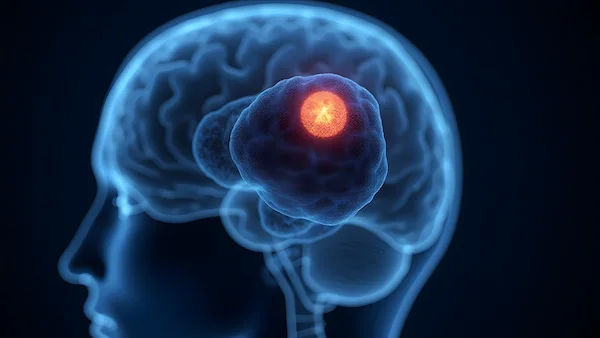Hydrocephalus Overview and Treatment Options
Hydrocephalus is a condition where excess cerebrospinal fluid builds up in the brain. Learn about its symptoms, causes in both children and adults, and the different treatment options available, including shunts and endoscopy.


Hydrocephalus is a medical condition that affects the brain and can occur in people of all ages, from infants to older adults. While the term might sound complex, understanding what it is, its symptoms, causes, and treatment options can help patients and their families manage the condition better.
What is Hydrocephalus?
Hydrocephalus, often called "water on the brain," is a condition where excess cerebrospinal fluid (CSF) builds up in the brain’s ventricles (fluidfilled spaces). Normally, CSF flows through the brain and spinal cord, providing nutrients and cushioning. However, when there’s a blockage or imbalance in production and absorption, fluid accumulates, increasing pressure inside the skull.
If left untreated, this pressure can damage brain tissues and lead to serious complications. The good news is that with proper diagnosis and treatment, many people with hydrocephalus can lead healthy lives.
Symptoms of Hydrocephalus
Symptoms vary depending on age and the severity of the condition:
In Infants & Young Children:
Unusually large head size
Bulging soft spot (fontanelle) on the skull
Vomiting or nausea
Sleepiness or irritability
Poor feeding
Seizures
Delayed developmental milestones (e.g., sitting, crawling)
In Older Children & Adults:
Headaches (often worse in the morning)
Nausea or vomiting
Blurred or double vision
Difficulty walking or balancing
Memory problems or confusion
Fatigue and sleep disturbances
Loss of bladder control
In Older Adults (Normal Pressure Hydrocephalus NPH):
Difficulty walking (shuffling steps)
Memory loss or dementialike symptoms
Urinary incontinence
Slowed thinking and movement
If you or a loved one experience these symptoms, it’s important to seek medical advice promptly.
Causes of Hydrocephalus
Hydrocephalus can develop due to various reasons, including:
Congenital (Present at Birth): Some babies are born with hydrocephalus due to genetic conditions or developmental issues like spina bifida.
Acquired (Develops Later in Life): This can result from head injuries, infections (like meningitis), brain tumors, or bleeding in the brain (e.g., from a stroke).
Normal Pressure Hydrocephalus (NPH): Common in older adults, NPH occurs when CSF absorption slows down, but the exact cause isn’t always clear.
Consult a Neurologist for the best advice
Diagnosis of Hydrocephalus
Doctors use several tests to diagnose hydrocephalus, including:
Imaging Scans (MRI or CT Scan): These help visualize brain structures and fluid buildup.
Lumbar Puncture (Spinal Tap): Measures CSF pressure and checks for infections.
Intracranial Pressure Monitoring: In some cases, a small device is placed to monitor brain pressure.
Early diagnosis is crucial to prevent complications, so if you suspect hydrocephalus, consult a neurologist or neurosurgeon.
Treatment Options for Hydrocephalus
The primary goal of treatment is to reduce CSF buildup and relieve pressure on the brain. Common treatment options include:
1. Shunt Placement (Most Common Treatment)
A shunt is a flexible tube surgically placed in the brain to drain excess fluid to another part of the body (usually the abdomen), where it’s absorbed.
Pros: Highly effective in managing symptoms.
Cons: Requires monitoring; may need adjustments or replacements over time.
2. Endoscopic Third Ventriculostomy (ETV)
In some cases, surgeons create a small hole in the brain’s ventricle to allow fluid to bypass blockages naturally.
Pros: No permanent implant is needed.
Cons: Not suitable for all types of hydrocephalus.
3. Medication (Temporary Solution)
In rare cases, doctors may prescribe medications to reduce CSF production, but this is usually a short-term option.
Living with Hydrocephalus
While hydrocephalus is a lifelong condition, many people manage it successfully with proper care. Here are some tips:
Regular Followups: Shunt systems may need monitoring or adjustments.
Watch for Symptoms: Headaches, nausea, or vision changes may indicate a problem.
Stay Active: Physical therapy can help with mobility issues.
Support Groups: Connecting with others facing similar challenges can be helpful.
When to Seek Help?
If you or a loved one experience:
Severe headaches with vomiting
Sudden confusion or memory loss
Difficulty walking or seizures
Changes in vision
Seek immediate medical attention, as these could indicate shunt malfunction or increased brain pressure.
Final Thoughts
Hydrocephalus can be a challenging condition, but with timely diagnosis and treatment, many individuals lead fulfilling lives. If you suspect hydrocephalus, don’t hesitate to consult a specialist.
At Apollo 24|7, you can book a consultation with expert neurologists or schedule diagnostic tests like MRI/CT scans for accurate evaluation. Early intervention makes a big difference!
Stay informed, stay proactive, and take care of your brain health.
Consult a Neurologist
Consult a Neurologist for the best advice

Dr Debnath Dwaipayan
Neurosurgeon
9 Years • MBBS, MS(Gen. Surgery), DrNB (Neurosurgery)
Delhi
Apollo Hospitals Indraprastha, Delhi

Dr. Avinash Goswami
Neurologist
11 Years • MBBS, DNB (Medicine), Dr.NB (Neurology), MNAMS
Delhi
Apollo Hospitals Indraprastha, Delhi

Dr. Avinash Gupta
Neurologist
12 Years • MBBS, DNB - Neurology
Bilaspur
Apollo Hospitals Seepat Road, Bilaspur
(150+ Patients)

Dr. Uddalak Chakraborty
Neurologist
8 Years • MBBS,MD(GENL. MED.),DM(NEUROLOGY)
Kolkata
VDC Clinic, Kolkata
(25+ Patients)

Dr. Ganeshgouda Majigoudra
Neurologist
10 Years • MBBS, MD ( GENERAL MEDICINE) DM (NEUROLOGY)
Bengaluru
Apollo Clinic, JP nagar, Bengaluru
Consult a Neurologist

Dr Debnath Dwaipayan
Neurosurgeon
9 Years • MBBS, MS(Gen. Surgery), DrNB (Neurosurgery)
Delhi
Apollo Hospitals Indraprastha, Delhi

Dr. Avinash Goswami
Neurologist
11 Years • MBBS, DNB (Medicine), Dr.NB (Neurology), MNAMS
Delhi
Apollo Hospitals Indraprastha, Delhi

Dr. Avinash Gupta
Neurologist
12 Years • MBBS, DNB - Neurology
Bilaspur
Apollo Hospitals Seepat Road, Bilaspur
(150+ Patients)

Dr. Uddalak Chakraborty
Neurologist
8 Years • MBBS,MD(GENL. MED.),DM(NEUROLOGY)
Kolkata
VDC Clinic, Kolkata
(25+ Patients)

Dr. Ganeshgouda Majigoudra
Neurologist
10 Years • MBBS, MD ( GENERAL MEDICINE) DM (NEUROLOGY)
Bengaluru
Apollo Clinic, JP nagar, Bengaluru
